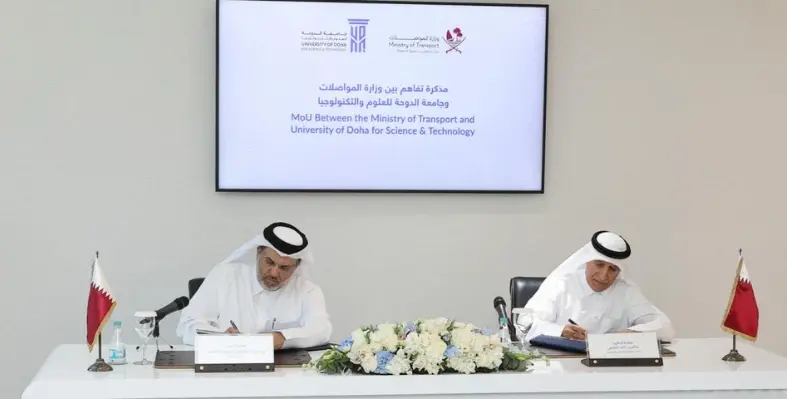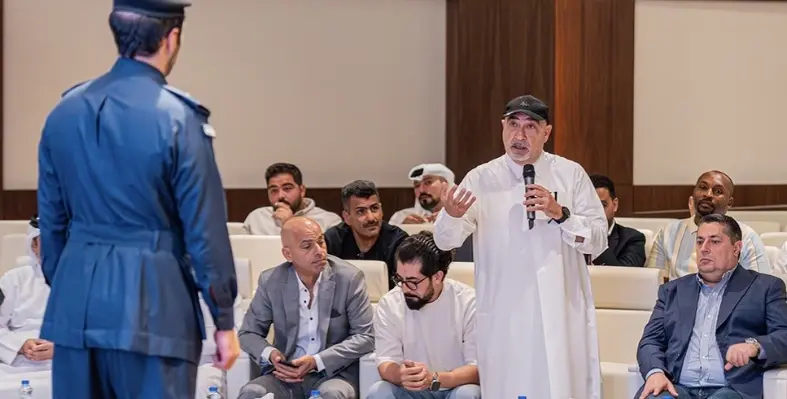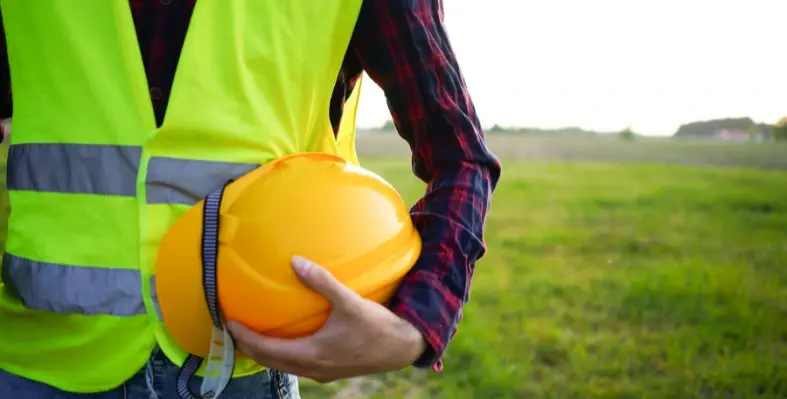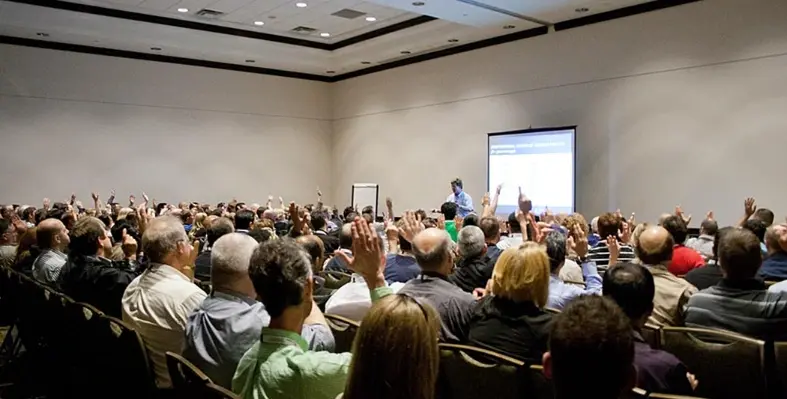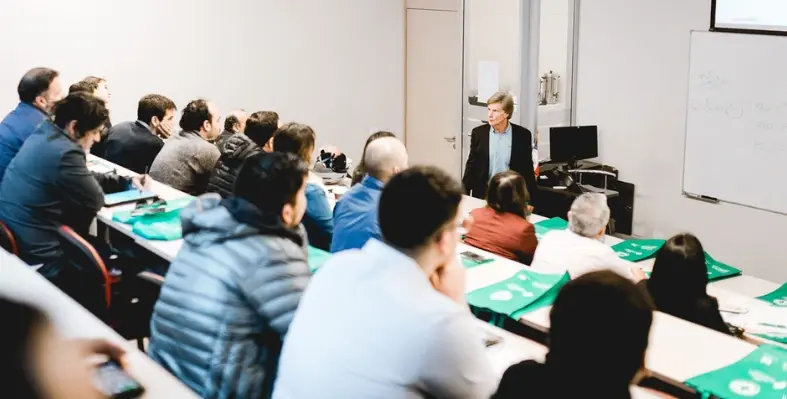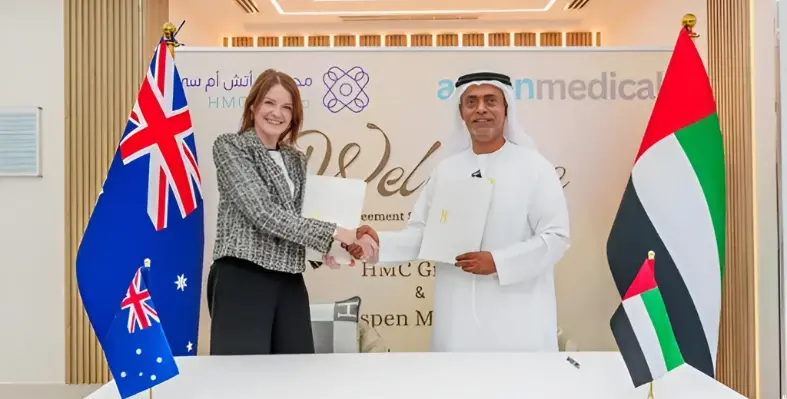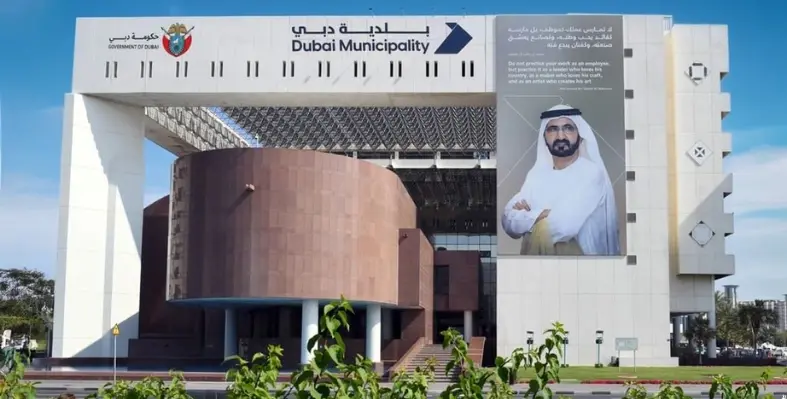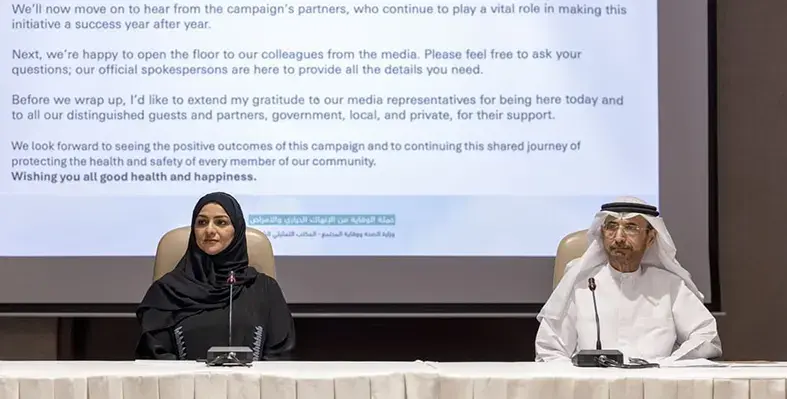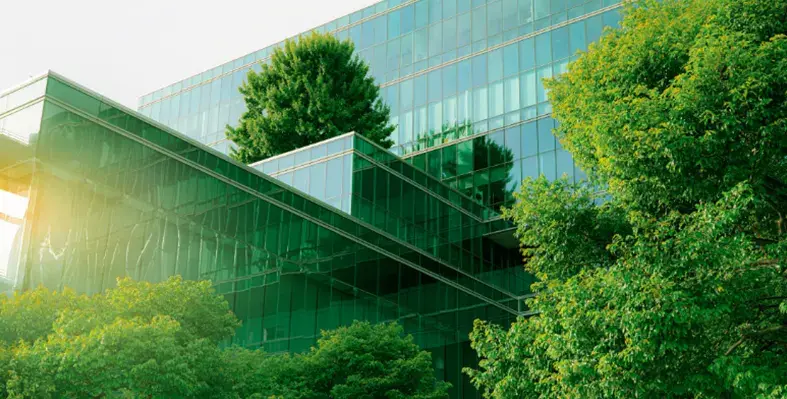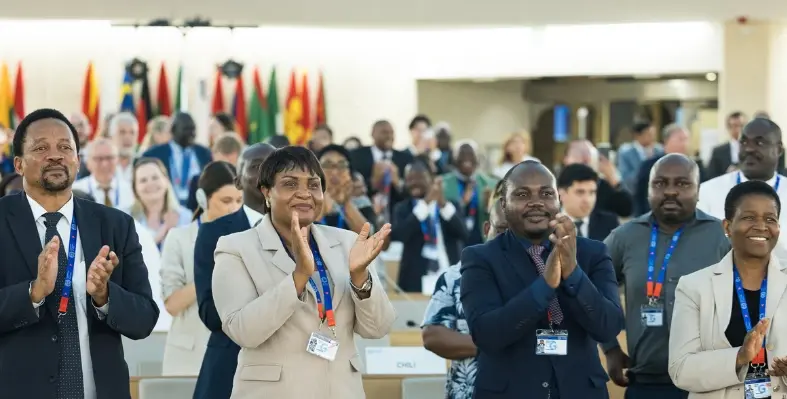Industrial Insights
Industrial Insights
- Details
- Louise Waters
- Industrial Insights
- Topic: HSE
- Date: 7 July 2025
- Year: 2025
The latest annual fatality statistics from the UK’s Health & Safety Executive (HSE) show that 124 workers were killed in work-related incidents in Great Britain from April 2024 to March 2025, fourteen fewer than in the previous 12-month period
This compares to 223 twenty years ago (2004/05) and 495 in 1981.
The figures relate to work-related accidents and do not include deaths arising from occupational diseases or diseases arising from certain occupational exposures.
The industries accounting for the highest number of deaths were construction (35) and agriculture, forestry and fishing (23). Agriculture, forestry and fishing continues to have the highest rate of fatal injury per 100,000 workers, followed by waste and recycling.
The most common cause of fatal injuries continues to be falls from a height (35), representing over a quarter of worker deaths in 2024/25 and reflecting the global trend.
A further 92 people who were not at work were killed in work-related incidents in 2024/25, ie members of the public who were in a workplace but were not working themselves.
HSE’s chief executive Sarah Albon said, “Great Britain is one of the safest places in the world to work, but we must remember each of these deaths represents a tragedy for families, friends and communities.
“Despite the stability in numbers, we cannot accept that fatal accidents are an inevitable part of working life. We are encouraged by the long-term trend but urge against complacency on workplace safety."
- Details
- Sania Aziz
- Industrial Insights
- Date: 4 July, 2025
- Year: 2025
Qatar has taken a major step forward in strengthening maritime safety standards with the launch of the Maritime Training and Simulation Center (MTSC) at the University of Doha for Science and Technology (UDST).
Inaugurated by the Undersecretary of the Ministry of Transport, H.E. Mohammed Abdullah Al-Maadeed, and the University’s President, H.E. Dr. Salem bin Nasser Al-Naemi, the MTSC is the first facility of its kind in the country dedicated to advancing maritime operations through world-class training.
The MTSC is equipped with cutting-edge simulation technologies that provide realistic, scenario-based training in navigation, full-mission engine control, and emergency response.
Its facilities include state-of-the-art classrooms and safety training environments for firefighting, first aid, and other critical risk management procedures.
International accreditation
Certified by the International Maritime Organization (IMO), the centre’s programmes are designed to meet international safety standards and ensure that Qatar’s maritime workforce is equipped to handle both routine operations and high-risk situations.
During the inauguration, H.E. Al-Maadeed toured the facility and received a first-hand demonstration of the centre’s advanced training systems, which are expected to significantly enhance the capabilities of maritime professionals in Qatar. The centre’s interactive simulations enable real-time learning and safety drills, reinforcing decision-making skills in complex and high-pressure environments.
The launch coincided with the signing of a strategic Memorandum of Understanding between the Ministry of Transport and UDST, which formalises a long-term collaboration to support Qatar’s maritime sector. The agreement aims to drive continuous safety improvement through international certification programmes, research partnerships, and knowledge sharing.
By prioritising safety training and technological innovation, the MTSC will play a critical role in developing a resilient and skilled maritime workforce, strengthening Qatar’s leadership in safe, efficient, and sustainable maritime operations.
H.E. Al-Maadeed said, "Inaugurating the MTSC today marks a significant milestone embodying Qatari educational institution’s commitment to enhancing the country’s maritime infrastructure and capabilities through such training facilities equipped with state-of-the-art world technologies. As the global maritime landscape evolves, preparing our workforce to lead with expertise and resilience is essential.”
Today’s MoU with UDST, he added, “is a cornerstone of MOT’s broader action plans that aim at further enhancing our maritime transportation ecosystem to contribute to achieving sustainable development of that vital industry.”
H.E. the Undersecretary thanked those in charge of those initiatives at UDST and thought the day was a promising day for the future of Qatar’s maritime industry.
His Excellency Dr. Al-Naemi, President of UDST, expressed the university’s pride in this achievement, "This centre represents more than just a facility, it is a strategic national asset that embodies our shared commitment to applied, industry-driven education. Through this collaboration with the Ministry of Transport, we are providing opportunities for hands-on learning with the most advanced simulation technologies in the region. Our mission is to ensure that Qatar’s maritime professionals graduate with the skills, confidence, and competence to meet the highest international standards. This initiative directly supports Qatar’s goals for economic diversification and maritime leadership."
- Details
- Sania Aziz
- Industrial Insights
- Date: 3 July, 2025
- Year: 2025
Qatar Tourism, in partnership with the General Directorate of Traffic, has held a dedicated road safety awareness workshop as part of the country’s ongoing efforts to ensure a safe and reliable tourism environment.
The session brought together tour guides, travel agencies, and licensed tour operators to highlight the legal and safety requirements for organising tourist transportation across Qatar.
The initiative aimed to reinforce awareness of safety protocols and traffic regulations that must be followed when transporting tourists between destinations.
Specialists led interactive sessions and open discussions, providing practical guidance on compliance with the Traffic Law, and offering insights into common violations that often lead to road accidents.
Key focus areas included ensuring tour operators understand the legal obligations that apply to road use during guided excursions, promoting responsible driving behaviour, and encouraging the adoption of best practices for safe tourist mobility.
The workshop also examined strategies to minimise unsafe conduct in tourist zones and ensure that both domestic and international visitors can enjoy seamless and secure experiences.
Emphasising road safety
Brigadier Jassim Nasser Al-Hamidi, Director of the Media and Traffic Awareness Department at the General Directorate of Traffic, reiterated the department’s commitment to supporting Qatar’s tourism sector by fostering a culture of traffic law awareness.
He stressed the importance of ongoing education efforts through seminars, lectures, and awareness campaigns to safeguard tourists and enhance their experience throughout the country.
This workshop is part of Qatar Tourism’s wider strategy to elevate the standards of professionalism within the tourism industry and ensure that safety, training, and compliance remain integral to the visitor journey.
The initiative supports Qatar’s broader vision of positioning itself as a safe and attractive regional destination.
Commenting on the initiative, Mr. Fahad Hassan Al-Abdulmalik, Director of Tourism Licensing at Qatar Tourism, said, “At Qatar Tourism, visitor safety is a top priority. This workshop is part of our continued commitment to enhancing the efficiency of the tourism sector and improving the preparedness of its workforce, particularly tour guides and operators, who serve as the first point of experience for visitors. These interactive workshops present an important opportunity to instil a culture of responsibility and compliance with traffic regulations, while also contributing to the development of effective partnerships between government bodies and the private sector, reflecting a spirit of cooperation in building a safe and inclusive tourism environment.”
- Details
- Sania Aziz
- Industrial Insights
- Date: 30 June, 2025
- Year: 2025
The U.S. Department of Labor’s Occupational Safety and Health Administration (OSHA) has entered into a three-year alliance with Amarillo College to improve safety training and hazard awareness among students, employers, and workers.
Signed on 26 June 2025, the partnership will focus on delivering free safety training and continuing education focused on preventing workplace incidents such as falls, electrocution, and struck-by injuries.
These risks are especially prevalent in the construction, oil and gas, and general industry sectors.
As part of the alliance, participants will engage in sharing best practices and proven safety strategies through a series of workshops, seminars, and lectures.
The initiative will also promote worker involvement in OSHA’s cooperative programmes, including its on-site consultation services, voluntary protection programmes, and formal safety partnerships.
This agreement is part of OSHA’s broader Alliance Program, which aims to build strategic relationships with organisations that prioritise workplace safety.
These partners range from trade associations and educational institutions to labour unions and government bodies.
Through such collaborations, OSHA works to equip both employers and employees with vital knowledge and resources while reinforcing workers’ rights and employers’ obligations under the Occupational Safety and Health Act.
"We are excited to announce the formation of a new alliance with Amarillo College, focused on increasing safety awareness among students and workers," said OSHA area director Elizabeth Linda Routh in Lubbock, Texas. "This alliance represents a commitment to provide essential training in hazard identification techniques, empowering individuals to recognise and minimise risks in their work environments."
- Details
- Sania Aziz
- Industrial Insights
- Date: 26 June, 2025
- Year: 2025
Trina Storage has become the first company in the energy storage sector to receive the IEC 61508 Functional Safety Process Certificate, awarded by UL Solutions, a global leader in safety science.
This certification was validated through the multilateral recognition of ANAB (U.S.) and the International Accreditation Forum.
It was marked by a ceremony attended by Dr Sheng Yun, Vice President of Trina Storage’s Product Research Institute, and Sam Wei, Global & Strategic Accounts Director at UL Solutions for Greater China.
IEC 61508 is the foundational international standard for functional safety, governing safety requirements for electronic systems across the entire lifecycle, from design and development to ongoing maintenance.
It serves as the basis for various industry-specific standards, including ISO 26262 for automotive systems and IEC 61511 for industrial applications.
With this certification, Trina Storage can more effectively mitigate critical risks such as thermal runaway and battery management system (BMS) failure by implementing proactive safety controls in line with defined Safety Integrity Levels (SILs).
New energy solutions
In a landscape marked by increasing system complexity, Trina Storage’s achievement underscores its leadership in risk management and safety assurance.
Through its vertically integrated research, development, and manufacturing processes, the company has developed a world-class functional safety framework that spans product design, production, and operations.
This strengthens the reliability and robustness of its energy storage solutions.
Trina Storage said it remains committed to delivering safe, high-performance energy storage systems.
Looking ahead, the company will continue working closely with global organisations like UL Solutions to push the boundaries of safety and innovation in the energy sector.
Dr. Sheng Yun said, "This certification validates our holistic functional safety management system and reflects Trina Storage’s engineering excellence. We’ll continue advancing safety practices aligned with global leading methodologies and contributing to the development of the industry.”
Sam Wei of UL Solutions said, "The energy storage sector relies on functional safety to maintain safe operating conditions for energy storage, whether through the use of a battery management system, charging station, inverters or other control systems for safe operation. We at UL Solutions are honored Trina Storage turned to us to apply our testing expertise to confirm their mitigation of potential safety risks."
Also read: Teledyne GFD launches dual-gas detector
- Details
- Sania Aziz
- Industrial Insights
- Date: 25 Jun, 2025
- Year: 2025
FOR IMMEDIATE RELEASE
- SafeStart International brings global safety experts Larry Wilson and Sarah Stoker to Abu Dhabi for an exclusive two-day workshop.
- The event focuses on human factors and behavioural strategies to reduce incidents both at work and beyond.
- Participants will receive certification upon completion, gaining practical tools for long-term safety and performance improvement.
Abu Dhabi, UAE: SafeStart International, a world leader in human factors training and safety performance improvement, will host a specialised health and safety workshop in Abu Dhabi from 18-19 November 2025, bringing together safety professionals from across the region for an immersive two-day programme.
The workshop will be led by renowned safety expert Larry Wilson, Author and Founder of SafeStart International. With over 25 years of consulting experience and implementation across 75 countries, Wilson is widely recognised for his pioneering work in human error reduction and safety awareness. His methodologies have transformed safety cultures in over 4,500 organisations globally.
Joining him will be Sarah Stoker, Development Director at SafeStart International, who brings over two decades of operational and safety consulting experience. Known for her dynamic delivery and deep implementation knowledge, Stoker has supported organisations of all sizes in embedding SafeStart principles into their operations.
This high-impact workshop will introduce participants to proven approaches that address the root causes of human error, offering practical techniques to reduce incidents both on and off the job. Rather than focusing on regulatory compliance or mechanical safeguards, the programme dives into behavioural patterns and decision-making processes that lead to critical safety moments.
Participants will engage in structured discussions, peer learning and hands-on activities designed to drive meaningful and lasting change. The session also includes a certification component for those who complete the workshop and demonstrate understanding of key concepts.
The Abu Dhabi workshop underscores the growing regional emphasis on proactive safety cultures and the importance of addressing human factors in safety strategy.
Limited seats are available, and interested participants are encouraged to register early to secure their spot. Venue details will be confirmed soon.
Register for the Super Early Bird offer.
More information can be found on Offshore Network.
About SafeStart International
SafeStart is a proven safety awareness and human performance programme that has helped millions of people in thousands of companies reduce injuries and improve performance. It is built around critical error reduction techniques and is designed for 24/7 applicability at work, at home, and on the road.
About Offshore Network
Offshore Network is a leading platform that connects the offshore oil and gas community through high-quality content, industry events and collaborative initiatives. The company facilitates knowledge sharing and innovation across global energy markets. It is a trusted platform dedicated to advancing safety, operational excellence, and innovation.
For media enquiries or to register, please contact:
Imran Uddin
Project Manager
Offshore Network
UK (Tel) +44 (0) 207 834 7676
E:
-ENDS-
- Details
- Sania Aziz
- Industrial Insights
- Date: 24 June, 2025
- Year: 2025
FOR IMMEDIATE RELEASE
-
Participants will become certified SafeStart trainers, gaining the ability to deliver the programme internally within their own organisations.
-
The course includes structured personal storytelling exercises to reinforce learning and enhance peer-to-peer knowledge sharing.
Manila, Philippines – SafeStart International, a global leader in human factors and injury prevention training, will hold its Trainer Certification Level 1 Course from 22-23 July 2025 at Ascott Bonifacio Global City Manila, located in Taguig, Metro Manila.
Designed to empower in-house safety leaders and training professionals, this certification course equips participants to deliver SafeStart’s core principles within their organisations. The highly interactive programme focuses on understanding human error, risk patterns, and behavioural safety, enabling internal trainers to drive long-term cultural change.
Leading the sessions are two of SafeStart’s top global facilitators: Larry Wilson, Founder of SafeStart and a pioneer in the field of human factors, and Sarah Stoker, Development Director at SafeStart with over 20 years’ experience in operational and safety consulting. Together, they bring unmatched expertise in safety performance training across industries and regions.
The course blends theoretical insights with practical application, covering critical error reduction techniques, state-to-error risk recognition, and strategies for improving decision-making in high-pressure environments. Participants will also engage in personal storytelling exercises and group discussions to reinforce the SafeStart methodology.
Upon successful completion, participants will be certified to deliver SafeStart Level 1 training within their own organisations, paving the way for stronger internal capability and a sustainable, 24/7 safety culture.
Event details:
Dates: 22–23 July 2025
Venue: Ascott Bonifacio Global City Manila, 5th Avenue, corner 28th Street, Taguig, Metro Manila - 1634 Philippines
Spaces are limited and early registration is encouraged. More details can be found on Offshore Network.
Register for the Early Bird offer, which expires June 30 2025.
About SafeStart International
SafeStart is a globally recognised human performance programme that helps organisations reduce injuries and improve performance by addressing human error. With more than 5 million people trained across 75 countries, SafeStart provides practical tools that work 24/7 on the job and beyond.
About Offshore Network
Offshore Network is a trusted platform dedicated to advancing safety, operational excellence, and innovation in the offshore oil and gas industry. Through events, insights and expert-led initiatives, it connects safety professionals and decision-makers across the global energy sector.
For all enquiries, please contact:
Imran Uddin
Project Manager
Offshore Network
UK (Tel) +44 (0) 207 834 7676
E:
-ENDS-
- Details
- Sania Aziz
- Industrial Insights
- Date: 24 June, 2025
- Year: 2025
Aspen Medical has signed a Memorandum of Understanding (MoU) with Holistic Medical Centre (HMC) to enhance integrated healthcare services for high-impact industries across the UAE.
The partnership supports the nation’s increasing emphasis on workplace wellbeing and the advancement of occupational health standards.
With more than nine years of experience in occupational healthcare, Aspen Medical will collaborate with HMC to design and deliver tailored health programmes that promote safer, more resilient work environments.
Occupational medicine remains vital in preventing and managing work-related illnesses, helping ensure employees remain healthy and productive.
The agreement outlines a shared commitment to delivering comprehensive healthcare solutions for key sectors, including defence, energy, corporate, and national security.
These services will be accessible in both urban centres and remote locations, ensuring readiness wherever it is required. Under the MoU, HMC will lead occupational health and specialist referrals, while Aspen Medical will provide onsite medical care and clinical advisory support.
The partnership also includes joint wellness initiatives such as immunisations, preventive screenings, and long-term health risk management.
Looking ahead, the collaboration will explore the introduction of additional services focused on workforce wellbeing. These could include mental health awareness initiatives and basic workplace training, such as first aid courses which strengthen organisational preparedness and support a culture of health and safety.
Claire Westbrooke-Keir, general manager of Aspen Medical UAE, said, “The UAE’s investment in occupational health reflects a clear understanding of the link between workforce wellbeing and long-term national resilience. Our partnership with HMC is built on shared values and a commitment to practical, high-quality solutions that meet the real needs of industries and employees alike.”
Dr. Nahyan Helal, founder and CEO of Holistic Medical Centre, added, “Occupational healthcare has long been a cornerstone of public health. This collaboration builds on that foundation, helping employers meet regulatory requirements while enhancing the wellbeing of their teams through accessible, tailored medical support.”
- Details
- Sania Aziz
- Industrial Insights
- Date: 23 Jun, 2025
- Year: 2025
To mark World Hydrography Day, Dubai Municipality hosted an event titled “Enhancing Safety, Efficiency, and Sustainability in Maritime Activities,” spotlighting the vital role of hydrographic surveying in infrastructure planning and marine sustainability.
The event also highlighted the Municipality’s advancements in producing nautical charts and its contributions to the responsible use of marine resources in line with the UN Sustainable Development Goals (SDGs).
As a member of the International Hydrographic Organization (IHO), Dubai Municipality reaffirmed its commitment to enhancing navigational safety and developing a robust hydrographic survey system.
These efforts support the Municipality’s broader vision of leveraging innovation to create cutting-edge urban planning systems and achieving global competitiveness in hydrographic services.
The event showcased Dubai’s latest tools, technologies, and practices used in marine project implementation. It also demonstrated how detailed hydrographic data and updated nautical charts are improving maritime navigation, supporting coastal urban development, and protecting the marine environment.
Dubai Municipality’s participation in international initiatives under the IHO framework reflects its aim to promote knowledge-sharing and expand the societal benefits of hydrographic data.
Since becoming the first government entity in the UAE and Middle East to join the IHO in February 2023, the Municipality has reinforced its status as a global leader in hydrographic surveying and nautical charting, playing a key role in enhancing maritime safety across Dubai’s coastal waters.
- Details
- Sania Aziz
- Industrial Insights
- Date: 20 June, 2025
- Year: 2025
The Ministry of Health and Prevention (MoHAP), in collaboration with the Sharjah Supreme Council for Family Affairs and various public and private sector partners, launched the 14th Heat Exhaustion and Disease Prevention Campaign, themed “Your Safety is Our Priority”.
Set to begin on 3 July, the campaign coincides with the midday work ban in July and August, aiming to raise awareness of heat exposure risks and equip outdoor workers with tools to prevent heat-related illnesses.
The campaign was unveiled at a press conference at the Sharjah Chamber of Commerce and Industry.
This year’s initiative broadens its focus to include families, domestic workers, factory employees, and field-based professionals such as police officers, municipal inspectors, engineers, and delivery drivers.
Awareness efforts will include virtual sessions, SMS alerts, and on-site events across more than nine locations in Sharjah and its Central and Eastern Regions.
These will feature educational lectures, medical screenings, and health-focused competitions with giveaways to encourage safe practices.
Increased field inspections, in partnership with the Ministry of Human Resources and Emiratisation, will ensure compliance with the midday work ban, while workers will receive protective gear, food, and drinking water.
A multimedia campaign across radio, TV, and social platforms will further amplify health and safety messages.
A PPP initiative
Partners include the Ministry of Human Resources and Emiratisation, Sharjah Government Media Bureau, Sharjah Police, Emirates Health Services, Sharjah Sports Council, Labour Standards Development Authority, Sharjah Municipality, Sharjah Broadcasting Authority, Prevention and Safety Authority, Sharjah Volunteering Centre, Sharjah Coop, Sharjah Charity International, the Friends of Kidney Patients Association, Emirates Red Crescent, Sharjah Investment and Development Authority (Shurooq), Fast Building Contracting, Al Jaber Optical, Medcare Group, Aster DM Healthcare, Burjeel Specialty Hospital, NMC Hospital, Zulekha Hospital, Life Pharmacy Group, and Gaia Healthcare.
Mohammed Al Zarooni, Director of MoHAP’s Representative Office in Sharjah, stated that the campaign reflects the UAE’s commitment to safeguarding worker welfare and fostering safe work environments.
He noted that it adheres to World Health Organisation standards and contributes to sustainable development by prioritising human health.
Al Zarooni added that the campaign will expand outreach, provide multilingual resources, and promote a culture of safety across all sectors.
“Empowering people and ensuring a balance between workplace demands and public health is essential, especially during the summer. This campaign reinforces MoHAP’s dedication to preventive care and builds solidarity between institutions and communities,” he said.
Iman Rashid Saif, Director of the Health Promotion Department at the Sharjah Supreme Council for Family Affairs, said the campaign exemplifies social responsibility and human solidarity, in line with the vision of Sheikha Jawaher bint Mohammed Al Qasimi, Chairperson of the Council.
She highlighted that the initiative provides guidance on hydration, sun avoidance, appropriate clothing, and nutrition to help workers manage heat effectively.
“It is the unity of the campaign’s partners and associations that drives this mission forward,” she added.
- Details
- Sania Aziz
- Industrial Insights
- Date: 19 June, 2025
- Year: 2025
The International Code Council Evaluation Service (ICC-ES) has granted Evaluation Service Report ESR-5402 to SmartCare CureAssure, a pioneering internal curing admixture developed by Asian Paints.
This chloride-free, Type S liquid admixture enhances concrete performance by retaining internal moisture, reducing reliance on traditional external curing methods, and marks a significant step forward in sustainable construction practices in the region.
SmartCare CureAssure is the first product of its kind to be evaluated for compliance with the Dubai Building Code (DBC), earning official approval from Dubai Municipality under ICC-ES Acceptance Criteria AC564 for internal curing concrete admixtures.
In a region where concrete construction prevails and challenges like embodied carbon and resource consumption persist, this admixture offers a practical solution.
It boosts concrete strength and durability while significantly cutting water usage, aligning with the Gulf Cooperation Council’s (GCC) environmental and sustainability objectives.
Reducing risks
The approval establishes a robust precedent for adopting sustainable building technologies across the region.
By providing third-party technical validation, ICC-ES demonstrates a clear pathway for emerging technologies to meet stringent code requirements, fostering opportunities for greener construction methods.
This empowers manufacturers, developers, and regulators to adopt innovative solutions that enhance building resilience, environmental performance, and resource efficiency, contributing to a more sustainable built environment in the GCC and beyond.
The milestone underscores ICC-ES’s ongoing commitment to evaluating innovative systems that address the growing demands for building safety, sustainability, and performance in the Middle East and North Africa (MENA) region.
Evaluation Service Reports provide technical validation for novel materials and systems, facilitating market access for global manufacturers while ensuring compliance with local codes, thus reducing risks and streamlining adoption.
Mohamed Amer, managing director of ICC MENA, stated, "We are proud to support the advancement of sustainable and resilient construction practices through the issuance of this ESR. By validating innovative systems such as SmartCare CureAssure against rigorous code requirements, ICC-ES is helping pave the way for a safer, more efficient, and environmentally responsible construction future - one that aligns with the GCC’s long-term development goals."
Joseph Eapen, CEO of Asian Paints International Private Ltd, said, "This achievement reflects our commitment to delivering high-performance, sustainable solutions for the construction sector. Having ICC-ES independently verify the performance of our system for compliance with the DBC reinforces our dedication to innovation and environmental stewardship."
- Details
- Sania Aziz
- Industrial Insights
- Date: 18 June, 2025
- Year: 2025
The 113th International Labour Conference (ILC) concluded on 13 June with a groundbreaking achievement: the adoption of the world’s first international labour standards to protect workers from biological hazards in the workplace. Convention No. 192 (C192) marks a significant milestone in global efforts to bolster occupational health and safety across all sectors.
The new Convention mandates that ILO Member States develop national policies to prevent exposure to biological hazards, implement protective measures, and establish preparedness and response strategies for emergencies, such as outbreaks or pandemics.
Employers are required to collaborate with workers to enact preventive measures, ensuring workers are informed and trained about associated risks.
An accompanying Recommendation provides detailed guidance, including risk assessments, early warning systems, and training protocols.
It clarifies the definition of biological hazards, outlining transmission routes such as airborne, contact, or vector-borne pathways.
Together, these instruments form a robust, adaptable framework to safeguard workplaces now and in the future.
While Conventions are legally binding upon ratification, Recommendations serve as non-binding guidelines.
The plenary session reviewed ILO Director-General Gilbert F. Houngbo’s report, Jobs, Rights and Growth: Reinforcing the Connection.
Speaking at the closing ceremony, Houngbo emphasised the consensus among delegates that social dialogue and democratic institutions are vital for fostering social cohesion and supporting sustainable, human-centred societies.
He also highlighted the registration of 18 ratification instruments from eight Member States during the session.
“Our mandate matters more than ever,” Houngbo said. “We are duty-bound to keep moving steadfastly forward on the quest for social justice, together.”
The Conference initiated its first standard-setting discussion on decent work in the platform economy, a crucial step towards improving conditions for digital platform workers.
Delegates agreed on key elements, including the creation of a Convention supported by a Recommendation, and established basic definitions and scope.
Proposed standards address fundamental rights, fair remuneration, social security, occupational safety, data privacy, and dispute resolution.
Discussions will continue at the 114th ILC in 2026, aiming for adoption of both instruments.
Reducing informality and maritime labour
The ILC adopted a Resolution to reduce informality and support the transition to formal employment.
The Resolution urges action to enhance working conditions, extend social protection, and create decent jobs, particularly for those most impacted by informality.
It also calls for a global roadmap and national strategies supported by the ILO.
In maritime labour, the Conference approved seven amendments to the 2006 Maritime Labour Convention (MLC) Code.
These address violence and harassment on ships, reinforce seafarers’ rights to shore leave and repatriation, and recognise seafarers as key workers.
The amendments also improve access to medical care and ensure fair treatment during detention or maritime incidents.


